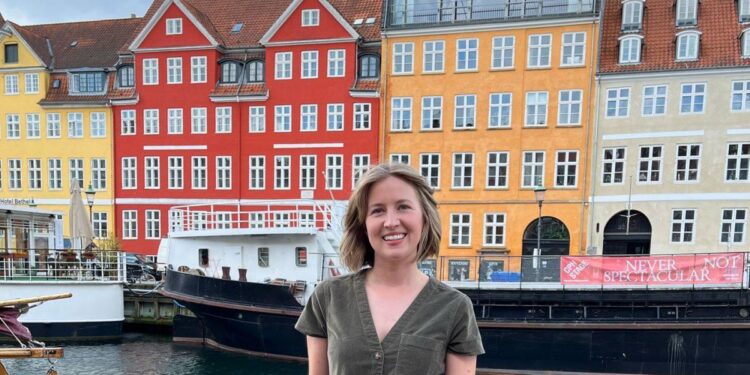Denmark has unveiled an ambitious ã˜80 million initiative aimed at advancing quantum computing research and innovation. The government’s new funding program seeks to position the country at the forefront of the rapidly evolving quantum technology landscape, supporting academic institutions, startups, and industry collaborations. This strategic investment underscores Denmark’s commitment to harnessing the transformative potential of quantum computing for economic growth and technological leadership.
Denmark Commits Significant Funding to Accelerate Quantum Computing Research
Denmark is making a bold stride in the realm of quantum technology by launching an ambitious funding program designed to bolster its position in the global quantum computing landscape. The government has pledged ã˜80 million over the next five years to support pioneering research, infrastructure development, and collaborative projects between academia and industry. This substantial investment aims to accelerate breakthroughs in quantum algorithms, hardware, and software, creating a fertile environment for innovation and positioning Denmark as a key player in the rapidly evolving field.
The initiative encompasses diverse priorities, including:
- Establishing national quantum hubs that integrate multidisciplinary research efforts
- Fostering partnerships between universities, startups, and established tech firms
- Developing quantum education programs to nurture specialized talent
- Accelerating commercialization of quantum technologies for industrial applications
Below is a snapshot of the projected allocation of funds:
| Category | Funds Allocated (㘠million) | Focus Area |
|---|---|---|
| Research & Development | 35 | Quantum algorithms, error correction |
| Infrastructure | 20 | Quantum computing labs, hardware |
| Education & Training | 15 | Specialized courses, workshops |
| Industry Collaboration | 10 | Startups, private sector partnerships |
Key Focus Areas and Expected Technological Breakthroughs from New Initiative
The ã˜80 million investment will primarily target advancements in quantum hardware development, focusing on improving qubit quality and system scalability. Researchers are expected to pioneer innovative error correction techniques alongside breakthroughs in quantum coherence times, which are essential for practical and reliable quantum computing. Additionally, strengthening the integration of quantum processors with classical computing architectures remains a critical goal, aiming to speed up hybrid computational frameworks that can tackle real-world problems more efficiently.
Another key area of emphasis lies in fostering applied quantum algorithms, especially those designed for complex simulations in chemistry, materials science, and cryptography. The initiative also highlights significant commitments to establishing robust quantum communication networks, ensuring secure data transfer based on quantum encryption. Below is an outline of the primary technological ambitions:
- Next-gen qubit architectures with enhanced stability
- Advanced quantum error correction protocols
- Hybrid quantum-classical systems integration
- Quantum algorithm development for industry applications
- Secure quantum communication infrastructure
| Focus Area | Expected Breakthrough | Impact |
|---|---|---|
| Qubit Technology | Extended coherence time | Improved quantum stability |
| Error Correction | Novel fault-tolerant codes | Reliable computations |
| Algorithm Design | Optimized chemistry simulations | Accelerated drug discovery |
| Quantum Networks | Secure quantum key distribution | Unhackable communications |
Experts Urge Collaboration Between Academia and Industry to Maximize Impact
Leading voices in the quantum computing field emphasize that unlocking the full potential of Denmark’s ã˜80 million investment requires seamless cooperation between academic institutions and industry players. Experts warn that isolated efforts risk duplication and inefficiency, whereas strategic partnerships can accelerate innovation cycles and enhance commercialization pathways. Universities bring fundamental research and cutting-edge laboratories, while private companies contribute real-world applications and market-driven focus, forming a symbiotic relationship essential for sustained progress.
To fuel this cross-sector synergy, experts recommend establishing dedicated frameworks such as:
- Joint research centers focused on applied quantum technologies
- Industry-funded PhD programs to bridge knowledge and skills gaps
- Shared technology incubators to translate breakthroughs into startup ventures
| Collaboration Type | Benefit | Example Initiative |
|---|---|---|
| Joint Research | Accelerated innovation | Quantum Simulation Labs |
| Industry Scholarships | Talent pipeline creation | Quantum Futures Fellowship |
| Incubators & Startups | Market-driven solutions | Q-Tech Startup Hub |
Insights and Conclusions
Denmark’s ã˜80 million investment in quantum computing marks a significant step toward advancing the nation’s position in the global technology landscape. As the initiative unfolds, it is expected to foster collaboration between academia, industry, and government, accelerating research and development in this cutting-edge field. Observers will be watching closely to see how this funding translates into tangible breakthroughs and economic growth in the years to come.
















